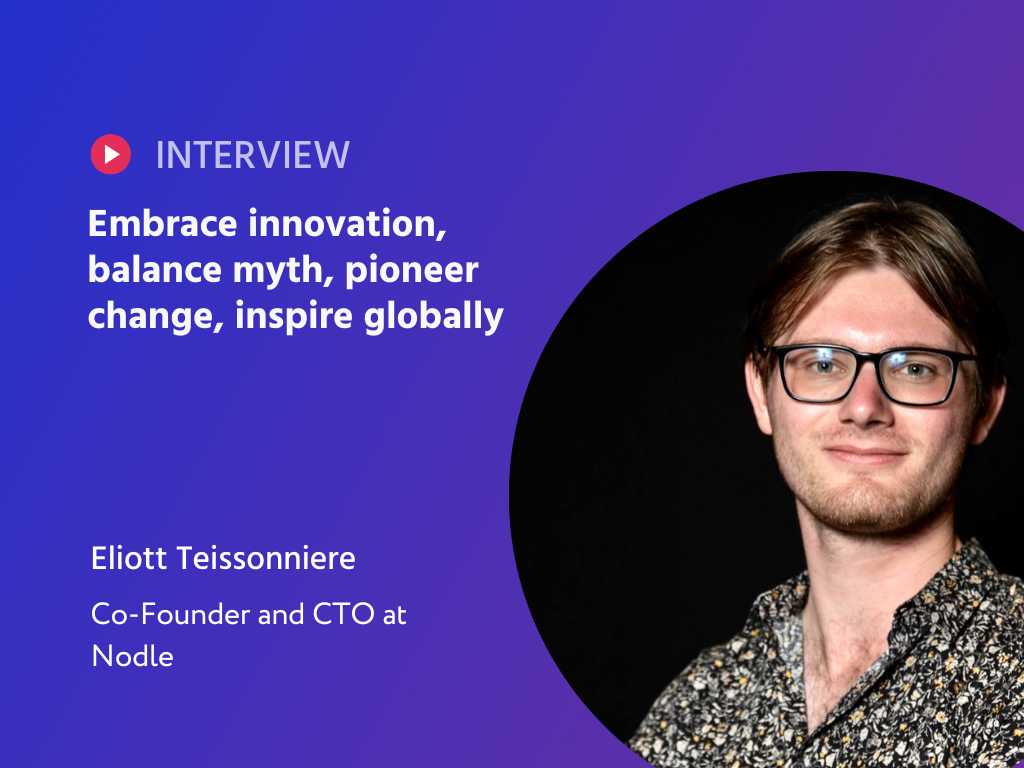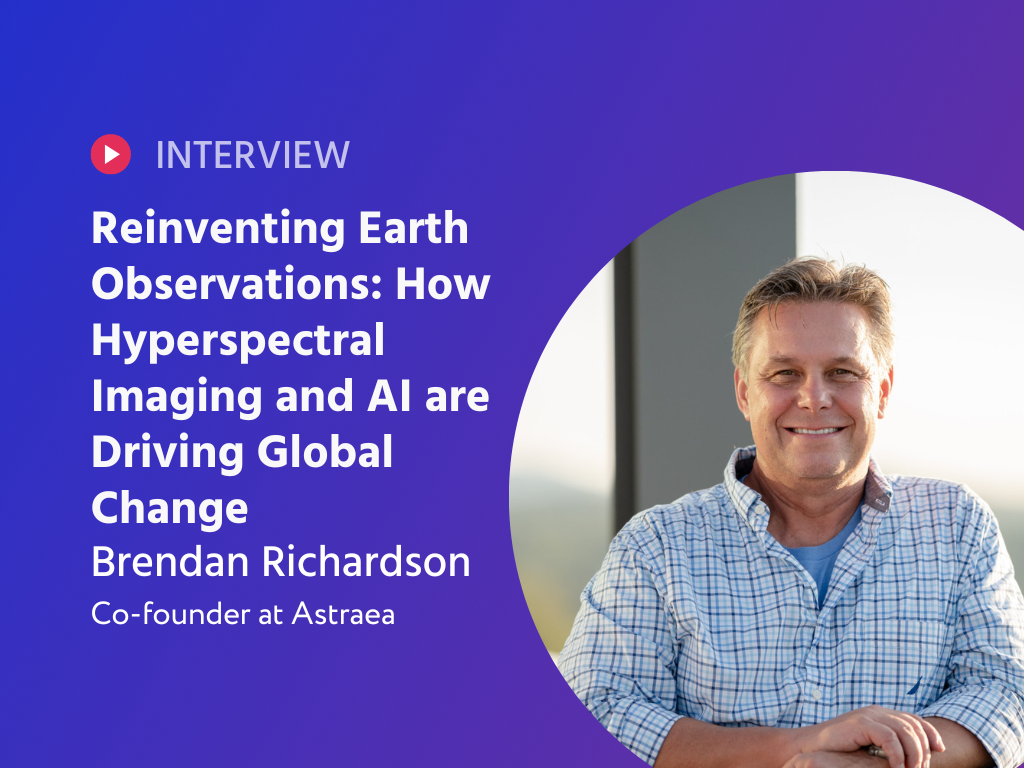At Temy, we believe that technology can—and should—drive meaningful change. In our latest Bright Founders Talk, we had the pleasure of sitting down with Raz Hadas, the Co-Founder and CEO of TovTech, a company on a mission to make the high-tech world more inclusive.
Raz brings a unique blend of personal experience, academic expertise, and visionary leadership to an issue close to his heart: helping people with disabilities integrate into Israel’s competitive tech industry. What started as a personal journey evolved into a full-fledged social enterprise that offers AI and data training, hands-on internships, and career pathways for individuals often overlooked by mainstream hiring practices.
TovTech’s programs go far beyond education—they offer real-world experience and open doors to employment at companies like Amdocs and Wix. In our conversation, Raz shared the challenges his team faces, the systemic gaps in the industry, and the successes that keep them going. His story is one of resilience, innovation, and an unwavering commitment to equity in tech. Read on to learn how TovTech is transforming lives, one line of code at a time.
From Struggle to Strategy: How Raz Is Redefining Tech Careers for People with Disabilities
Raz didn’t build TovTech from a distant sense of charity—he built it from lived experience. As someone who lives with a mental disability, he saw firsthand how the tech industry tends to ignore people like him: capable, intelligent, but not wired for 60-hour workweeks and relentless pressure. “I realized there are so many high-functioning people with disabilities who just don’t fit into the rigid structure of high-tech,” he told us. Instead of accepting that reality, Raz decided to challenge it head-on. He took his background in economics, data, and AI and fused it with a deep personal mission: to open the doors of high-tech to those who are often locked out.
TovTech’s approach isn’t about handouts or surface-level inclusion. It’s about creating actual opportunities—starting with real training and extending into real-world work experience. Over the last four years, Raz and his team have run courses specifically for people with disabilities in data and AI. But they quickly realized that courses alone weren’t enough. “There’s a huge gap between finishing a course and actually landing a job,” Raz explained. That’s why they introduced paid internships—six months of hands-on experience, with plans to expand them to one or even two years. It’s not just training; it’s a full-on launchpad.
There’s a huge gap between finishing a course and actually landing a job
The results speak for themselves. TovTech’s graduates have landed roles at major companies like Amdocs and Wix, with some even getting into international AI programs. But beyond stats and placements, what really shines is the human impact. Raz personally reaches out to companies, advocates for his trainees, and helps match them with meaningful roles. It’s grassroots meets high-tech. “We do a lot to give our people an advantage—because we know they’re starting from behind,” he says. And in doing so, Raz isn’t just creating coders—he’s building a more compassionate and inclusive future for tech.
Fighting the Stigma: Raz Hadas on Redesigning Tech for the ‘Invisible’ Disabilities
For Raz, the biggest challenge isn’t teaching someone how to code or master machine learning—it’s changing the way the world sees them. When it comes to mental disabilities, the prejudice isn’t always loud or obvious. Sometimes it’s just hesitation, a subtle pause during the hiring process, a quiet doubt about someone’s reliability. “With physical disabilities, people see it and understand it. Mental disabilities? People just don’t get it,” Raz told us. His mission? To flip that hesitation into recognition—and to prove that people with mental health challenges can not only survive in tech but thrive in it.
With physical disabilities, people see it and understand it. Mental disabilities? People just don’t get it
And let’s be clear—this isn’t a story about charity. It's about building real talent pipelines in a space most don’t even think to look. TovTech isn't just training junior devs or QA testers; they’re pushing into R&D roles, AI, data science—positions with weight, complexity, and long-term potential. But doing this in a system designed for simplicity is a constant uphill battle. “We’re always asking the government to support something they’ve never seen before—remote, high-level tech work done by people with mental disabilities,” Raz said. It’s uncharted territory, and every new project requires a fresh round of explanations, paperwork, and persuasion.
Measuring success? That’s another beast entirely. There are no real benchmarks for what TovTech is doing—because almost no one else is doing it. Sure, they could count how many students finish the course or how many get hired, but that doesn’t capture the whole story. One job placement could take a year, but when it happens, it’s huge. “For us, every time we help someone land a job—it’s a win,” Raz says simply. And in a world obsessed with KPIs and growth charts, that kind of impact-driven approach feels refreshingly real.
From the First 11 to 150+: Raz’s Rollercoaster Ride from Personal Struggle to Purpose-Driven Startup
Raz will be the first to admit it—starting TovTech wasn’t smooth sailing. He laughs when thinking back to the first course they ever launched with just 11 people. “Now when I look at it... it was terrible,” he says with a grin. But every founder knows that early chaos is part of the deal. What sets Raz apart is the reason behind the grind. Each person in the program isn’t just another name on a spreadsheet—they’re someone he relates to, someone he’s fighting for. And that makes the stakes feel a whole lot higher. When someone he recommends has a setback or vanishes mid-interview due to a mental health crisis, it hits home: “It puts me in a really tough spot,” he says.
But TovTech doesn’t just train and cut ties. After the course ends, the real work begins. Graduates go on to paid internships, often inside TovTech itself, where they’re immersed in team dynamics, project workflows, and real industry tools like Slack and JIRA. “It’s not just about learning to code,” Raz explains. “It’s about learning how to work with others in a tech environment.” That practical, team-based experience is what sets his program apart—and why companies are starting to call him when they want to hire inclusively. The goal isn’t just employment; it’s long-term integration into an industry that hasn’t always made space for people like them.
It’s not just about learning to code, it’s about learning how to work with others in a tech environment
Interestingly, Raz always knew he’d build something. Even when choosing his studies, he skipped the classic tech founder route and dove into economics and finance—because he wanted to understand how businesses actually work. It paid off. Four years after that shaky launch, TovTech has supported over 150 people, partnered with multiple Israeli government ministries, and become a known force in a space that barely existed before. When asked what he’d change if he could go back, Raz pauses. “Honestly? I don’t think I’d do anything differently,” he says. “Everything we did—good or messy—got us to where we are now.”
From Cold Emails to Gaming Platforms: How Raz Built a Mission-Driven Tech Startup with Heart
For Raz, networking isn’t a polished LinkedIn strategy or a stack of business cards—it’s a leap of faith. In the early days of TovTech, he said yes to every meeting, never knowing which one would lead somewhere. “It’s totally random,” he says. “You just talk to people, and sometimes it turns into something amazing.” One of those lucky breaks? A casual chat with a Canadian nonprofit that later landed TovTech a global project teaching AI and Google Workspace. But it wasn’t magic—it was momentum. Raz put himself out there constantly, and the doors opened, little by little.
You just talk to people, and sometimes it turns into something amazing
When it comes to tech, Raz is both hopeful and hilariously honest. Yes, he’s excited by AI. Yes, he wants his team to use cutting-edge tools. But ask him how it’s going, and he’ll tell you straight up: “At first, nothing worked—it was a mess!” That brutal trial-and-error has shaped TovTech’s approach. Instead of obsessing over building custom AI from scratch, they now lean into no-code tools and practical hacks that fit their lean team and mission. Still, it’s a balancing act—between ambition and budget, innovation and stability. But Raz’s adaptability is what keeps TovTech moving forward, even when tech trends shift faster than funding rounds.
And just when you think you’ve heard it all, Raz drops another surprise: a gaming platform. “We noticed a lot of people in our community love gaming—especially those with autism or social anxiety,” he says. So they built Top Play, a safe, inclusive space just for players with disabilities. It’s not just about fun; it’s about belonging. Raz’s advice to future founders? Think differently about flexibility. “If you can offer people fewer hours but more understanding, they’ll stay longer and be happier,” he explains. In a world obsessed with hustle, Raz is quietly proving that compassion and impact are a power combo worth betting on.




